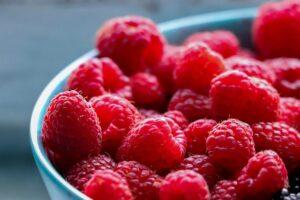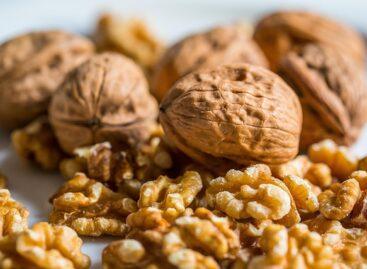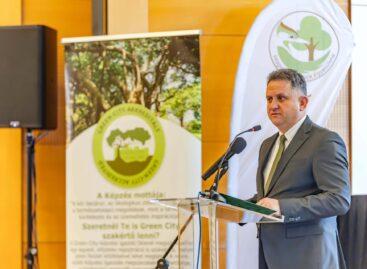A new approach is needed in the production of berries
Although climate change has a serious impact on the domestic production of berries, changes could be achieved in this area with the appropriate production technology and variety selection. The professional day organized by the National Chamber of Agriculture and the Hungarian University of Agricultural and Life Sciences took stock of the sector’s opportunities and presented the results of the previously launched agroforestry experiment to date.

(Photo: Pixabay)
Due to the changed climatic conditions, a new approach is needed in the domestic production of berries; changes are also needed in breeding, variety selection, plant protection, and the entire production technology. While experience helps a lot, the role of data, new approaches, and modern solutions in practice is increasing. On this occasion, a professional day was organized by the National Chamber of Agriculture and the Hungarian University of Agricultural and Life Sciences (MATE) together with the Institute of Horticulture at the MATE Research Station in Fertőd.
Due to climate change and labor shortages, raspberries are only grown sporadically in our country
There are only a few large, interconnected plantations in the country: raspberries are grown on 16 hectares in Nógrád County, 10 hectares in Heves County, and 7-8 hectares in Zala and Vas Counties. Our currant cultivation is in a better position, with its cultivation taking place on an area of approximately 1,000 hectares. Blackberries are grown on 30-40 hectares nationwide in our country. In our country, Nógrád County is traditionally the true home of berries, but cultivation is still carried out in several parts of Győr-Moson-Sopron County.
All researchers agree that one of the biggest challenges in the cultivation of berries is mitigating the effects of climate change
The ripening time of our main raspberry varieties falls on the period when temperatures of 35-40 degrees Celsius occur in our country. Breeding options alone are not enough to withstand extremes, plants need shading. Shading can be done with artificial elements (shading tents) or with natural elements (agroforestry system). The MATE Institute of Horticulture launched an agroforestry experiment to find a natural solution to shading. The noble poplar clones were planted at the end of March 2017, after which the experts planted raspberries, black currants and blackberries in the spring of 2018. In the experiment, the renewable capacity, cane yield and growth vigor of two cane-growing varieties, ‘Fertődi zamatos’ and ‘Fertődi kármin’, and the candidate, twice-fruited, facultative cane-growing variety ‘Fertődi narancs’ were examined. In 2019, colleagues from the University of Sopron also joined, examining the water flow of the system with hydrological measurements. The aim of the agroforestry experiment is to improve the ecosystem services, economic viability and adaptability to climate change of raspberry and basically berry fruit production in the Pannonian Basin.
In the case of raspberries, the measurement results and visual experiences confirmed the effectiveness of the cultivation
Favourable results were also observed in the evening for blackcurrant. Shading did not show outstanding values for blackberries. But in general, it can be said that excessive shade resulted in unfavourable growth and poor development. In the case of all the berry plants examined, it may be more beneficial to plant the plants in the looser shade of the fruit trees. In addition to the results of the experiment, the event also presented the newly bred berry varieties, the raspberry variety range must also adapt to the new challenges of distributors, consumers, the refrigeration and canning industry and, last but not least, the expectations of growers.
NAK
Related news
European Court of Auditors: EU Commission proposals affecting the common agricultural policy may cause uncertainty
🎧 Hallgasd a cikket: Lejátszás Szünet Folytatás Leállítás Nyelv: Auto…
Read more >Walnuts are available at incredible prices
🎧 Hallgasd a cikket: Lejátszás Szünet Folytatás Leállítás Nyelv: Auto…
Read more >The Ministry of Agriculture pays special attention to supporting the horticultural sector
🎧 Hallgasd a cikket: Lejátszás Szünet Folytatás Leállítás Nyelv: Auto…
Read more >Related news
Nearly 140 domestic suppliers, 60% growth – SPAR Regions Treasures program accelerates with AI solutions
🎧 Hallgasd a cikket: Lejátszás Szünet Folytatás Leállítás Nyelv: Auto…
Read more >








